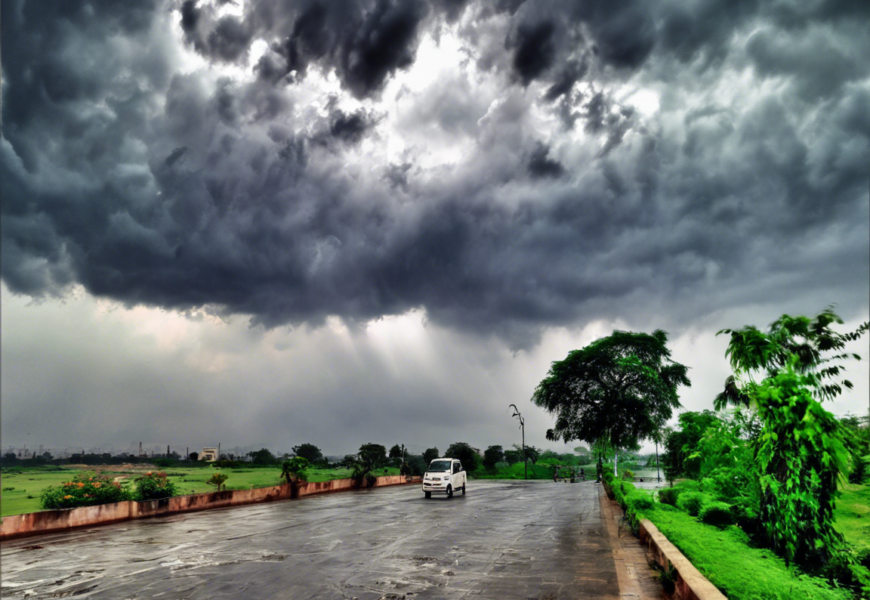Nestled in the heart of India, Bhopal is a city that boasts a unique charm marked by its diverse and sometimes unpredictable weather patterns. This city serves as the capital of the central Indian state of Madhya Pradesh and is known for its rich history, stunning landscapes, and vibrant culture. However, one aspect that often takes center stage in the lives of the residents and visitors alike is the ever-changing weather in Bhopal.
Understanding Bhopal’s Climate
Bhopal experiences a subtropical climate characterized by hot summers, cool winters, and a monsoon season. From scorching summer days that can reach up to 45 degrees Celsius (113 degrees Fahrenheit) to chilly winter nights when temperatures drop to 3 degrees Celsius (37 degrees Fahrenheit), Bhopal sees a wide range of temperature variations throughout the year.
Key Seasons in Bhopal
-
Summer: Bhopal’s summer typically lasts from March to June, with May being the hottest month. The scorching heat during this time can be intense, making it crucial for residents and tourists to stay hydrated and seek shade.
-
Monsoon: The monsoon season in Bhopal typically begins in late June and lasts until September. This period brings relief from the summer heat as rainfall transforms the city into a lush green paradise. However, heavy rains can sometimes lead to waterlogging and occasional flooding in low-lying areas.
-
Winter: Bhopal’s winter season spans from November to February, with January being the coldest month. While temperatures are generally mild, the city experiences occasional cold waves that can make the nights chilly. Warm clothing is a must during this time of year.
Factors Influencing Bhopal’s Weather
Several factors contribute to the ever-changing weather patterns in Bhopal. These include:
-
Geographical Location: Bhopal’s proximity to the Vindhya Range and the Malwa Plateau plays a crucial role in shaping its climate. The city’s elevation also impacts its temperature fluctuations.
-
Monsoon Winds: The southwest monsoon winds bring significant rainfall to Bhopal during the monsoon season, influencing the city’s precipitation patterns.
-
Urbanization: Rapid urbanization and deforestation in and around Bhopal have altered the city’s microclimate, leading to increased temperatures and decreased green cover.
-
Air Pollution: Like many other Indian cities, air pollution is a growing concern in Bhopal. Smog and pollutants in the air can affect weather conditions and overall air quality.
Weather-Related Activities in Bhopal
Despite its ever-changing weather patterns, Bhopal offers a variety of activities for residents and tourists to enjoy throughout the year. Some popular weather-dependent activities in Bhopal include:
-
Boat Rides: Enjoy serene boat rides on the Upper Lake and Lower Lake during the pleasant weather of winter and monsoon.
-
Nature Walks: Explore the lush greenery of Van Vihar National Park and other natural reserves during the cool winter mornings or the post-rain freshness of the monsoon season.
-
Picnics: Pack a picnic and head to the various gardens and parks in Bhopal, taking advantage of the pleasant weather in spring and autumn.
-
Festivals: Partake in colorful festivals such as Navratri, Diwali, and Eid, which are celebrated with fervor throughout the year, each offering a unique experience based on the season.
Tips for Dealing with Bhopal’s Weather
To navigate the ever-changing weather of Bhopal effectively, here are some useful tips:
-
Stay Hydrated: Carry a water bottle with you, especially during the hot summers, to stay hydrated and avoid heat-related illnesses.
-
Dress Appropriately: Wear light and breathable clothing during the summer and layer up with warm clothes during the winter months.
-
Check Weather Forecasts: Stay informed about weather updates to plan your activities accordingly and avoid being caught off guard by sudden changes.
-
Protect Yourself: Use sunscreen and carry an umbrella or raincoat during the monsoon season to shield yourself from the harsh sun or unexpected showers.
Frequently Asked Questions (FAQs)
Q: When is the best time to visit Bhopal considering its weather patterns?
A: The best time to visit Bhopal is during the winter months (November to February) when the weather is cool and pleasant.
Q: Does Bhopal experience extreme weather conditions?
A: While Bhopal’s weather can be intense during summer and occasionally chilly in winter, extreme weather conditions are rare.
Q: What should I pack for a trip to Bhopal?
A: Pack light, breathable clothes for summer, warm layers for winter, and an umbrella or raincoat for the monsoon season.
Q: Are there any weather-related events or festivals in Bhopal?
A: Bhopal hosts various festivals throughout the year, each offering a unique cultural experience influenced by the season.
Q: How does pollution in Bhopal affect its weather patterns?
A: Air pollution in Bhopal can impact weather conditions and overall air quality, contributing to temperature rises and compromised visibility.
Q: Can I engage in outdoor activities in Bhopal year-round?
A: While weather may influence outdoor activities, Bhopal offers opportunities for exploration and recreation throughout the year with proper planning.
Conclusion
Bhopal’s ever-changing weather patterns add a dynamic element to the city’s allure, inviting visitors to experience its diverse climate throughout the year. By understanding the key seasons, factors influencing weather, and tips for navigating weather-related activities, residents and tourists can make the most of their time in this vibrant Indian city. Whether you’re exploring the parks in spring, indulging in festive celebrations in autumn, or seeking refuge from the summer heat near the lakes, Bhopal promises a memorable experience shaped by its fascinating weather dynamics.




